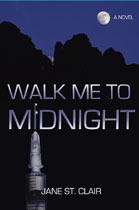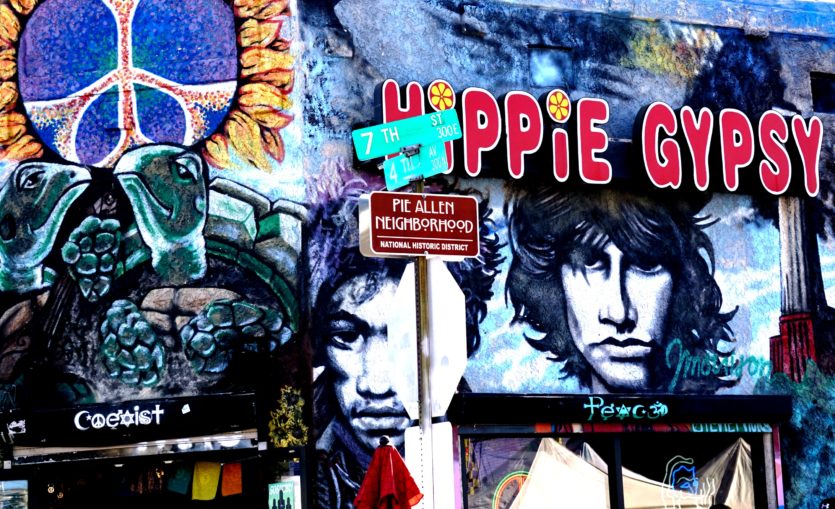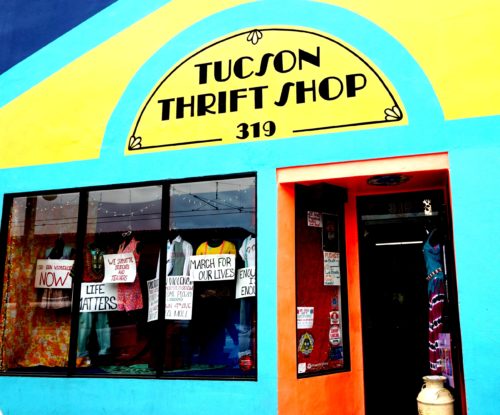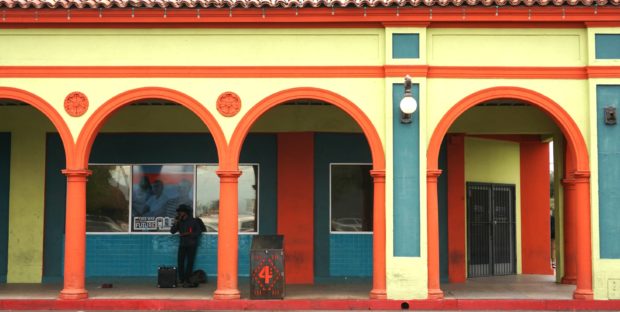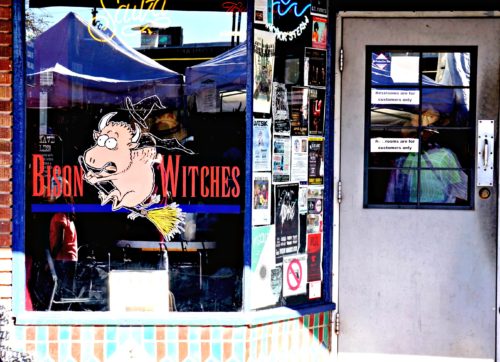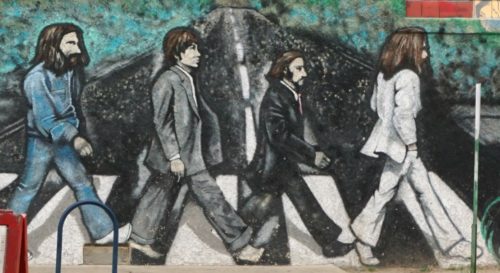Fourth Avenue
by Jane St. Clair
Every city or university town has a place like Tucson’s Fourth Avenue.
It’s the groovy neighborhood full of bookstores, coffee houses, and shops where you buy art, marijuana, tattoos, vintage clothing, and tarot readings.
You see people who got left behind there and who are still living in the 1960’s. And you see people who got left completely behind and who are living in stairwells and on park benches. But you’ll also see writers, artists, students, musicians, revolutionaries, and philosopher-kings living there as well.
Someone’s always protesting something on Fourth Avenue.
You’ve got to admire their passion.
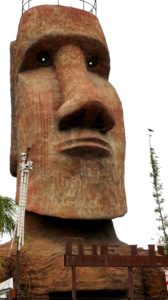 For some reason Fourth Avenue has this big Dairy Queen right in the middle, and a huge Tiki Man on one end of it. Tiki Man has creepy green eyes that stare down at you like Dr. T.J. Eckleberg’s eyes in “Great Gatsby.” What are you smoking, Tiki-Man?
For some reason Fourth Avenue has this big Dairy Queen right in the middle, and a huge Tiki Man on one end of it. Tiki Man has creepy green eyes that stare down at you like Dr. T.J. Eckleberg’s eyes in “Great Gatsby.” What are you smoking, Tiki-Man?
Fourth Avenue has its own trolley, one of the most expensive trains in the country in terms of cost per-foot. The trolley runs less than four miles but cost almost $200 million or about $50 million a mile.
Far out, eh, man?
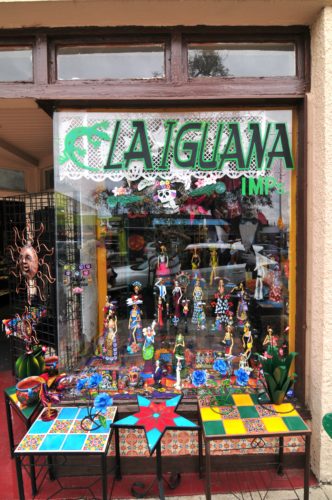
Fourth Avenue is part of the Pie Allen Historic District. The neighborhood looks as if it’s honoring the historic 1960s, but its historic value is in its buildings from the 1880s to 1930s. The district was named after Pie Allen, a prospector. Yes, that is his real name –not Allen Pie. Pie baked pies as well panned for gold.
What you’d like about Fourth Avenue–
–Cool thrift stores and hip restaurants
–A Food Co-op that promotes sustainability
–The arches in the Goodwill Building
–Street musicians and the green cactus piano you can play yourself
–The annual Fourth Avenue Street Fair
–Revolutionary spirit
–Creativity and art everywhere in sight
A groovy place, this hippie heaven
Where it’s always the summer of ‘67
Wising Up Press accepted Jane St. Clair’s short story, “Secrets of Mama Kardashian,” to be included in a new anthology called Crossing Class: The Invisible Wall. The stories in this book all explore “The great unspeakable” about a country based on the principle that all people are equal.

